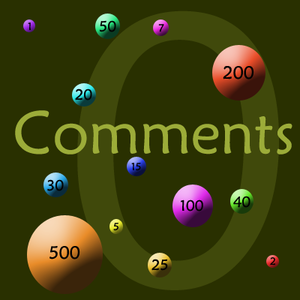 Lately every time I sit down to write a blog post I hit a wall. I can usually get a paragraph or two out but then it just won’t come any more.
Lately every time I sit down to write a blog post I hit a wall. I can usually get a paragraph or two out but then it just won’t come any more.
I’ve started blog posts on why small businesses need to use social media, on Facebook ads, about personality in your writing…. they’re all saved and closed because getting them finished seemed impossible.
We all hit walls
We are constantly encouraging people to write a lot of content. Content for their blogs, websites, newsletters, Facebook, Twitter and sometimes more! We know it isn’t always easy. Even when we know what we want to say, sometimes the words just don’t come out.
What can we do?
I decided that instead of hitting my head against my desk because I couldn’t complete a number of posts even though I knew what I wanted to say I was going to write a post about overcoming writer’s block (hoping that the change of subject would help me overcome my own).
I googled and I read all kinds of articles and I’m going to share some of the tips that struck me most. Oh, and one of them I saw repeatedly was “Write about something else” so this totally wasn’t procrastinating!
Free writing
Just write. Write anything that comes into your head. Do you remember stream of consciousness exercises? Do that. In my opinion, it would be even better with a pen and paper, but wherever you write, just let your brain throw anything it wants out. Write until it doesn’t seem difficult anymore.
This quote from Maya Angelou really made me smile too. Irritate your muse into getting back into action:
“What I try to do is write. I may write for two weeks ‘the cat sat on the mat, that is that, not a rat.’ And it might be just the most boring and awful stuff. But I try. When I’m writing, I write. And then it’s as if the muse is convinced that I’m serious and says, ‘Okay. Okay. I’ll come.’”
Mind mapping
What are you trying to say? Map out the entire thing.
I know that I have a tendency to have an idea and think “I know where I’m going to go with this” and then wonder why I’m sitting halfway through not knowing what to say next. Break it down.
- What are you writing about?
- Why are you writing about it?
- Who are you writing it for?
- What are you telling them?
- Are you making suggestions?
- Breaking down the steps on how to do something?
- How will you conclude what you had to say?
- What was the key thing they should have taken from all you wrote?
- And finally, what do you want them to do next?
Now that every part of what you wanted to say is down on paper, it may be a lot easier to tie it all together into the style of writing you’re looking for.
Tell someone else
I loved this piece of advice from John Steinbeck because I could immediately see how it would work for me. If I had someone ask me to tell them why social media for business was important, I would have no problem doing it. Writing it as an article is an entirely different proposition.
“Many years ago, I met John Steinbeck at a party in Sag Harbor, and told him that I had writer’s block. And he said something which I’ve always remembered, and which works. He said, “Pretend that you’re writing not to your editor or to an audience or to a readership, but to someone close, like your sister, or your mother, or someone that you like.” And at the time I was enamored of Jean Seberg, the actress, and I had to write an article about taking Marianne Moore to a baseball game, and I started it off, “Dear Jean … ,” and wrote this piece with some ease, I must say. And to my astonishment that’s the way it appeared in Harper’s Magazine. “Dear Jean …” Which surprised her, I think, and me, and very likely Marianne Moore.”
— John Steinbeck by way of George Plimpton
Go write something
Next time you’re stuck on a piece of writing, try one of the above tricks or check out some of these resources with other tips. And if you have a really great way you battle through writer’s block, leave a comment below.
Quick note: I think this is the longest post I’ve written in months, so maybe (just maybe) I broke down some of those writer’s block walls!
More posts on writer’s block:
- http://flavorwire.com/343207/13-famous-writers-on-overcoming-writers-block/
- http://www.lifehack.org/articles/communication/10-ways-to-combat-writers-block.html
- http://www.wikihow.com/Prevent-Writer’s-Block






